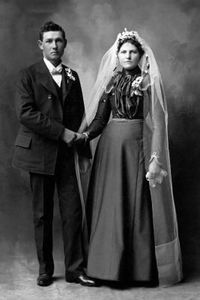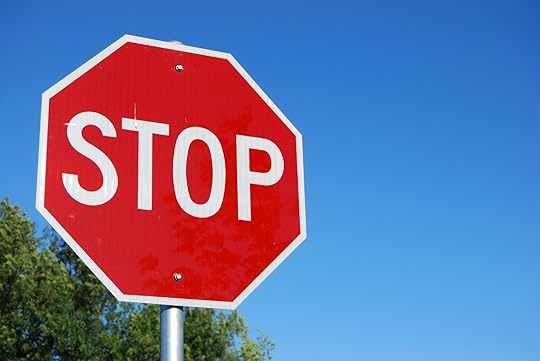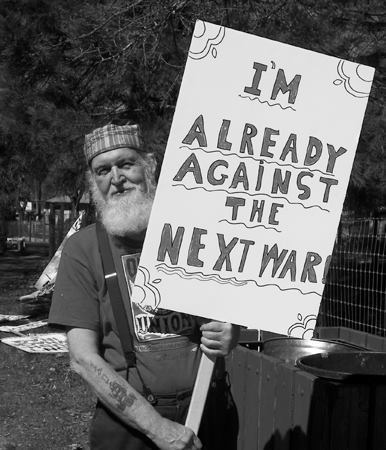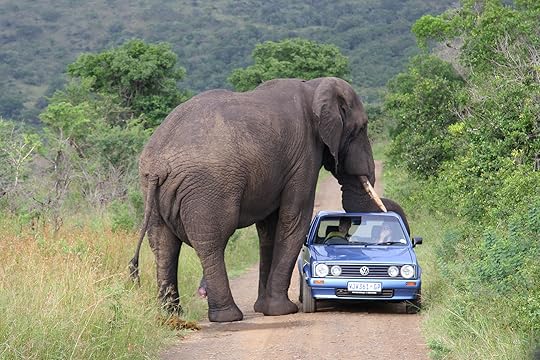Molly Fisk's Blog, page 4
January 16, 2014
Pick a Word for the Year
Like many of you, I've learned through personal experience that making New Year's resolutions is idiotic. It's such common practice in America, though, that a little discussion may be in order. I have an alternative to suggest.
Yes, we've all eaten and drunk our way through December, and now it's time for remorse, regrouping, and resolutions. We're going to lose weight, stop smoking, exercise regularly and learn Spanish or Mandarin, all while cutting down on the cocktails and only driving ten miles over the speed limit. There's one big flaw in this logic that no one ever mentions, though, and it's timing. If we were making resolutions on Memorial Day or the 4th of July, our chances of success would skyrocket. Warm weather and blue skies encourage happiness, and happiness encourages success. Trying to improve ourselves in January is just silly. In January, we should be sitting in front of the fire reading books or dozing, like the big mammals we are. Attempting to change ingrained habits when our brains are sluggish and it's snowing is a set-up for abject failure.
My friend Jane has a better idea: pick a word for the year. This is something you can ruminate on curled under your blankets just before you fall asleep. Turn it over in your mind while stacking firewood. Choosing a word doesn't go against the seasonal requirements of your inner Grizzly.
In my nine years of following this practice, when I open my mind to find a word, the word finds me instead. And won't go away, even when I want it to. “Surrender” was one from a few years ago that I just hated. I wanted “love” or “kindness,” something overtly positive. But I learned a ton about myself when I asked, in times of confusion or discord during that year, “what would happen if I surrendered?”
 Choosing a word gives you something to explore, to look forward to and pay attention to as the weeks roll by. Sometimes you'll forget your word and need to be reminded. But it's working on you nonetheless, whether you pay careful attention or not. You're in a relationship with it that will unfold, as opposed to a resolution, which is more of a chore to be done: it's a finite idea with no room for movement, it chides you.
Choosing a word gives you something to explore, to look forward to and pay attention to as the weeks roll by. Sometimes you'll forget your word and need to be reminded. But it's working on you nonetheless, whether you pay careful attention or not. You're in a relationship with it that will unfold, as opposed to a resolution, which is more of a chore to be done: it's a finite idea with no room for movement, it chides you.
Once you and your word have found each other, look up the derivation in a respectable dictionary and learn its origins. Empty is the word that claimed me last week — it's rooted in the Old English “aemetta” which means “leisure,” and “mot,” or “meeting.” Don't you wonder how a leisure meeting turned into something empty?! What I'm most interested in is the Buddhist sense, though, of being empty as a kind of invitation: available to be filled.
Seeing your life as a process, and how it's affected by just one word, is a kinder and more interesting tack than being disappointed in yourself for not going to the gym enough.
I mean, really.
December 16, 2013
Whose Side Are You On?
I hear another Dollar Store is coming to town, the third in our half of the county. As a certified shopping snob, I've only been to a dollar store once, and that was to find plastic flowers I could glue to a bike I was taking to Burning Man.
Back in the day, of course, you went to Woolworth's for plastic flowers. And sewing thread, new flip-flops every summer, the occasional root beer float. But Woolworth's has gone the way of the brontosaurus, like so many things from my youth, replaced by Cost-Co, Starbuck's, CVS, and the Dollar Store. I can see how a Dollar Store might be useful if you had 18 children or were a party planner, but if you're trying not to buy goods from China, it's a total loss.
 And here we arrive at a central paradox of our age: it is hard to be poor and also socially responsible. So many of the responsible options cost money, like wooden toys made in Kentucky, or clothing from North Carolina. The other irony is how many of the money-saving options cost money. The people who most need to save on gasoline are unable to afford even a used hybrid car. So middle class drivers who have $15,000 to lay out for a 2008 Prius are getting 45 miles to the gallon, and those whose used-car budgets don't go over $8000 are still getting a scant 22.
And here we arrive at a central paradox of our age: it is hard to be poor and also socially responsible. So many of the responsible options cost money, like wooden toys made in Kentucky, or clothing from North Carolina. The other irony is how many of the money-saving options cost money. The people who most need to save on gasoline are unable to afford even a used hybrid car. So middle class drivers who have $15,000 to lay out for a 2008 Prius are getting 45 miles to the gallon, and those whose used-car budgets don't go over $8000 are still getting a scant 22.
If you're trying not to buy goods from China — because they were made by child labor or you hate how China treats the Tibetans — you can't head for discount places like Walmart or the Dollar Stores. You need to check labels even at Crate & Barrel. Your best option for responsible inexpensive shopping is thrift stores. Many people I know are fabulous thrifters: they get that designer coat for twelve bucks or a dress in perfect condition for $3. This is the best kind of recycling: passing on whole goods for reuse. If something was made in China, it's not your problem to buy it used. Wearing it out is the responsible option now.
Unfortunately, I was raised by a father with expensive tastes and a mother with exquisite aesthetics, so I can't enter thrift stores, they give me hives. My entire immediate family would rather pay double if it means we get to browse in a lovely setting that smells like lavender instead of dead-people's closets. I do buy my appliances used, my windows and doors, every car I've owned. But ask me to wear shoes someone else has broken in?! That's like suggesting I sleep in unwashed motel sheets. “Yick!” is the only sane response.
What do you think? Can your town support another Dollar Store? Is buying cheap plastic items any way to save the oceans, or even the landfill? Do you have 18 children? When Tibetan monks light themselves on fire because of what China is doing to their country, whose side are you on?
November 13, 2013
Old Age, Sissies, Et Cetera
I'm not sure how this happened, but suddenly I've been living in Nevada County for 17 years. 17 years! That's almost a generation. That's from the day you're born to figuring out what to wear to the prom! I still think I'm new in town.
Since I didn't have kids, I miss the most convenient markers for the passing of time: they're two, they're eight, uh-oh, the sex talk!, how much is college tuition?!?! Nor am I watching a partner I've known since we were 20 go gray at the temples and get those nice cowboy wrinkles at the outer corners of his eyes. So in a way, time doesn't pass — I occasionally think: “how can it be Wednesday again already?” And there's a moment every April when spring is rushing toward us and I'm not ready for all that ecstatic fertility — the violence of those first green leaves. The painful joy or joyful pain of blooming. Again.
Most of the time I putter along with my eye on what money's coming in — calibrating whether to invent another writing class or find some more life-coaching clients — and the ways it can be spent: do I need a new roof yet? How about a chimney cap? Do Toyotas really last 300,000 miles? Would I save by making a lot of tomato sauce for the winter, or is this just a middle-class hippy-farmer fantasy?
 17 years is almost a third of my life. I never actually intended to move here; I'd never even heard of this county. But I fell in love with a guy, and the guy had a head injury so needed to live near some family, and he had two sisters here, so after a year of dating from three hours away, I moved in with him on Nursery Street.
17 years is almost a third of my life. I never actually intended to move here; I'd never even heard of this county. But I fell in love with a guy, and the guy had a head injury so needed to live near some family, and he had two sisters here, so after a year of dating from three hours away, I moved in with him on Nursery Street.
My father's motto was “never tell a dull story,” and there are times when I say I came to town as a mail-order bride. We never did get married, though. The head injury proved more of a barrier than I understood at the start, and after five years we ended up being best friends and living separately. The cowboy wrinkles at the corners of his eyes have gone with him into his grave, and I never met his two estranged children, but that's another story.
Looking back at the last third of my life makes me wonder about the future. I've already outlived my dad and his dad. In nine more years I'll outlive my mom, and in 14, both her parents. Every time one of my students dies, I think: is that going to be my route? Car crash? Cancer? Organ rejection? The person I look most like is my father's mother, the only one who lived into her 80s. She died on the sofa with a book on her chest at 11 o'clock in the morning. Doesn't that sound appealing?
I mean, if you have to die. Which they say you do. Even though nobody really believes it.
November 1, 2013
Deportee
Last week someone in our town ran a stop sign. Well, probably 47 people ran stop signs, but only one resulted in the threat of imminent deportation to the Grand Duchy of Luxembourg.
This chain reaction made me think of the mistakes I've made in my life that turned out okay. Times I crashed my car, but in one-person accidents I walked away from. Clueless forays into the bad part of a new city where I was heckled and followed but not raped, robbed, or killed. Lies I told that no one found out about. You've probably got memories like this, even if you don't want to admit them. Nobody's perfect, although I grant you, some of us are more imperfect than others.
 A few of my mistakes had more serious consequences: i've lost face, and friends, and have paid big fines to the IRS. But I've never ended up belly-chained in the county jail at risk of losing my spouse, home, business, and the community I helped build — after sliding through a stop sign. And I'm grateful. I think that's mostly a matter of luck, and not having been born in Luxembourg.
A few of my mistakes had more serious consequences: i've lost face, and friends, and have paid big fines to the IRS. But I've never ended up belly-chained in the county jail at risk of losing my spouse, home, business, and the community I helped build — after sliding through a stop sign. And I'm grateful. I think that's mostly a matter of luck, and not having been born in Luxembourg.
The central immigration issue here is that our stop-sign-runner stayed in the U.S. after her three-month visa expired. For, um, 15 years. This is the part where human compassion comes in, a compassion not in evidence on TV and newspaper polls, where many people said vitriolic things and voted to deport. (One local union even advised its members to vote that way, which I find appalling.)
Not dealing with the visa was dumb. Just as dumb as me not paying taxes for three years after my mother died. There are consequences for being dumb, but if it were a crime, half the U.S. Congress would be in jail right now, so don't get too hot under the collar about it. We've all done dumb things, hundreds of them. It's part of being human.
Our Luxembourgian friend is a lesbian, shouldering a burden of prejudice and legal discrimination as well as a legacy of fear. I don't know what that's like, but I can imagine it might paralyze you into not wanting to face more obstacles. She married her partner two weeks after it was legal to in California, and is in the process of completing green-card paperwork.
After eight days in jail, she was sprung, we're not sure how. Was it because our calls filled the voice-mail boxes at all four of Senator Feinstein's offices? Did someone pull the right string, one of the many people with connections who started calling in favors? Did a clerk somewhere shrug and reverse the immigration hold?
At the moment, nobody knows. It's wonderful to have this woman back among us., running her news website that so many depend on. We're helping raise money for legal fees, and yes, if they let her stay here, we'll make sure she files immigration paperwork in record time.
Because isn't that what friends are for? Helping us survive our own mistakes?
Yellow-Bellied Bottom Feeders
I wish I had something useful or even compassionate to say about the U.S. Government being shut down this week by a handful of entitled, rich, white, mostly male Republicans because they don't like a law that was enacted in 2009. The Supreme Court okayed it, but these guys don't like it. I think they should be stripped of salaries, health benefits, and consulting retainers, thrown in jail for contempt of the American people, and never allowed to run for public office again. This is not necessarily the opinion of KVMR, its board, staff, volunteers, underwriters, sponsors, or listeners, but I sure hope it's the opinion of some of you.
What are we going to do, sweet people? Stage another peace march up the main street of our little mountain town? Call our deeply indifferent Republican Congressperson? Stand silently for hours on the freeway overpass wearing black? It doesn't seem to me that these actions have been effective.
Is it time to walk to Washington from California? Light ourselves on fire like Tibetan monks? I'm not trying to be melodramatic, I'm trying to figure out how to boot this fringe element from power and get our country — flawed as it is, heaven knows — back into the business of supporting its citizenry rather than caving to a handful of racist, sexist, greedy, overgrown frat boys. I swear, if I had any idea what to do I would do it.
If Utah Phillips, our National-Treasure, home-town anarchist, were still alive he'd be out on the street somewhere, voting with his body, as he famously used to say. But which street, and where? Protesting at home just doesn't seem to make a dent in anyone's opinion. The same local activists join in and the same local Tea Partiers laugh as they drive by. It's business as usual.
 But where else should we go? Is it time for middle-aged poets to Occupy Washington, D.C.? Just supposing we could borrow money for the airfare and teach our classes from laptops in front of the Capitol Building so our rent still got paid. This is the rub. In order to protest we have to step out of our daily lives, and that can cause a lot of damage. The same kind of damage many government workers are experiencing this week. No paycheck. On-going projects and experiments ruined. And worse: just as an example, 200 juvenile cancer patients are missing treatments from the NIH at risk of their lives.
But where else should we go? Is it time for middle-aged poets to Occupy Washington, D.C.? Just supposing we could borrow money for the airfare and teach our classes from laptops in front of the Capitol Building so our rent still got paid. This is the rub. In order to protest we have to step out of our daily lives, and that can cause a lot of damage. The same kind of damage many government workers are experiencing this week. No paycheck. On-going projects and experiments ruined. And worse: just as an example, 200 juvenile cancer patients are missing treatments from the NIH at risk of their lives.
Anne Lamott says Congress is like the boozy uncle at Thanksgiving who just threw a full gravy boat across the room. We need to ignore him and take care of Great-Aunt Hilda who is thoroughly traumatized. Maybe it is a good time to drop extra blankets at your local homeless shelter. It's always a good time to do that for their sake. Maybe right now it's good for our sake, too. To counter the ignorance and mean spirits of those elected officials with generosity and open-heartedness “on the ground.”
A Brief for the Defense
P { margin-bottom: 0.08in;
The other night I was eating dinner with some friends and the conversation turned, as it does these days, toward the coming apocalypse. There was some talk about Victory Gardens, protesting Monsanto, whether any of us had artesian springs in our back yards, and then someone said: “It's kind of hard to figure out how to think about all this and still enjoy life. It's all so depressing.”
“Ah,” I said. “There's a wonderful poem about that idea, by Jack Gilbert.” Which is how I came to be reading off an iPad at the dinner table, something I'm sure both my grandmothers would deplore, although everyone seemed moved by the poem, and one person even cried.
This little story illustrates two things. First, that poetry is one of the ways complicated ideas can be explored and perhaps explained. Even though the form is also concise, a poem is the opposite of a TV sound-bite, which generally aims to simplify information and make it glib. Poems encompass contradiction. And second, it's useful to have a person in your midst — a poet or a reader of poetry — who can refer you to the relevant lines when you need them.
 As we get closer to a big change in our lives, whatever it will end up being — not enough food, a breakdown in transportation, weather disasters creating refugee populations, the collapse of our currency — some of us are worrying about what role we'll be able to play in the new order. Will we be useful and capable, or irrelevant? Ellen Bass had a poem in The New Yorker about slaughtering guinea hens, so she'll be alright. That's a very practical skill, and transferable. All these pot farmers in my county will be great to have around when the time comes to grow large amounts of food.
As we get closer to a big change in our lives, whatever it will end up being — not enough food, a breakdown in transportation, weather disasters creating refugee populations, the collapse of our currency — some of us are worrying about what role we'll be able to play in the new order. Will we be useful and capable, or irrelevant? Ellen Bass had a poem in The New Yorker about slaughtering guinea hens, so she'll be alright. That's a very practical skill, and transferable. All these pot farmers in my county will be great to have around when the time comes to grow large amounts of food.
I, on the other hand, almost threw up just reading Ellen's poem, and so far have been known for a black rather than a green thumb. I'm good at knowing which poem is relevant at the dinner table, but there may not be any iPads to look them up on, come the revolution. I think I'd better start memorizing pretty soon. That way people will at least feed me a little something by the fire in exchange for a recitation.
Jack Gilbert died last year. His poem, “A Brief for the Defense,” is in his book Refusing Heaven, published by Knopf in 2005. Here's how it ends.
...If the locomotive of the Lord runs us down,
we should give thanks that the end had magnitude.
We must admit there will be music despite everything.
We stand at the prow again of a small ship
anchored late at night in the tiny port
looking over to the sleeping island: the waterfront
is three shuttered cafés and one naked light burning.
To hear the faint sound of oars in the silence as a rowboat
comes slowly out and then goes back is truly worth
all the years of sorrow that are to come.
September 20, 2013
Carmel-by-the-Silvery-Sea
I find it difficult, as a self-employed person, to figure out how to take vacations. Outside the obvious parameters of teaching a two-hour class or editing someone's manuscript, it's hard to really account for any of my time. I don't punch a clock when stopping by the side of the road to write down what sandhill cranes look like circling overhead or when I wake up at four in the morning to catch the amazing metaphor in my dream. I've always guessed I work a little more than a 40-hour week, counting the mid-day lake swims all summer and an occasional matinee, but if I were to track my billable hours, I might find this to be complete wishful thinking. So I'm never convinced that I deserve a vacation in the first place.
Plus, for writers work and play are often intertwined. My writing students become friends, my friends become students, I get ideas everywhere I look, Saturday is no different from Thursday.
In any case, I found myself last week skimming down Highway One along the southern edge of Monterey Bay. This is the point at which, when I was seven, our dad would say, “How many motels do you see?” and we'd rouse from our naps in the Buick's back seat and get ready to count. There were either 41 or 42 — we never got the same number twice in a row, and Dad never turned back and let us count them again.
I decided to visit Carmel on my vacation because it wasn't too far away, it's almost always beautiful, and we had a weekend house there when I was a kid that turned into an all-the-time house for six months when my brother Sam was born. I wanted to be somewhere I already knew I loved.
I learned to tell my left hand from right in Carmel, at the corner of Casanova and Fourth St., where right was the right way to town. I checked out library books and read them in the pine needle fort in our back yard. I heard Joan Baez sing, live, at our grammar school assembly, when she was 20. Sometimes dead whales washed up on the Skin-Diver Beach. The Carmel River broke through every spring and we saw seals fishing in the pale green curls of the waves at its mouth.
A half-century later, the beaches look smaller, although the town does not, nor our old house. My grade school is a cultural center, and the “kid's books” have moved to another library building somewhere away from downtown. But the fog still rolls in over the turquoise water at the end of a hot day, and salt laces every breeze.
It was a busman's holiday, as most writer's holidays are. I stopped on the beach to get out my notebook: “Five dolphins swimming in white froth about fifteen feet from shore. Look up sine wave to see if that's really the shape their leaping and diving bodies describe.”
August 29, 2013
Dropping the Meat
P { margin-bottom: 0.08in
A friend took me to dinner last week at a French restaurant. I'd never heard of the place, and it took us a minute to find it after we got lost in a maze of mini-mansions. Our waitress was maybe 30, and we also had a water-pourer who looked about 12 but could pour backwards out of his carafe with astonishing accuracy. There were some buspersons, too, and mid-meal an older woman came along to make sure we were happy. And we were: the food was delicious.
When the bill came, I asked if my friend had been a waitress. Had she ever, at Woolworth counters all over California. This is my question to gauge tip-size, when someone else is paying for my dinner. If you've waited tables, you know how much those tips matter. You're on your feet for hours, remembering orders, carrying heavy trays, remaining civil when people behave poorly. There's a certain customer who feels free to treat you like garbage just because you're waiting on them. Even half a century later, you probably leave good-sized tips yourself. 
I once worked at Ferdinand's, in Cambridge, Mass. — the kind of place you took your parents after college graduation. We had to do this thing I've never heard of since, maybe because the chef was truly French. We had to figure out, after taking an order, how long every cut of meat would take to cook — and then calculate backwards so we could walk into the kitchen and tell them when to begin cooking it in order for everything to be done at the same time. This was called “dropping the meat.” So if you had a table of 6, with 4 meat orders, you had to zip into the kitchen four separate times and have them start the pork chops, which took 8 minutes (I'm making these times up), then the well-done filet, which was 6, then the veal picata, which was 5, then the rare filet, which was 4 and a half.
I have no idea how we did it: seven or eight waiters in line in the kitchen and the cooks ignoring us, but you had to have eye contact to know they'd heard you, and meanwhile your meal is getting screwed up because the line is so long. It was a nightmare.
The ONLY thing that made this tolerable was the size of the tips. Waitpeople are legally paid far less than minimum wage because the government counts tips as part of their earnings. So when you don't get tipped well, it's hard to make a decent living. And if anything goes wrong in the kitchen — your eggs are poached hard instead of soft — there's no way a customer can take revenge except by reducing the tip, even though it wasn't your fault.
Waiters tip bussers out of their own tips, and sometimes a percentage to the kitchen staff, too. So even if you never once waited on a table, be generous: put down 20%. The food will taste better. And your harried waitressing brothers and sisters all over the world will thank you.
August 28, 2013
The Speed of the Sound of Loneliness
P { margin-bottom: 0.08in;
One big drawback to living with cats is they're not good at holding a conversation. Monologues, yes, which I mostly understand, that have to do with food, competition, my lap, and bad weather. And food. I would actually be interested to hear if blue jays taste better than gophers and why they don't eat that one internal organ always left on the carpet. I bet they could tell me what's happened to some of our cats who've disappeared. But about these subjects they are mum.
I have lively discussions with the baristas at my favorite coffee shop, and my friends and I talk each others' ears off. But I actually spend most of my days either by myself or teaching, which is another monologue sport. Facebook provides an interesting social scene I never expected, and now and then a good conversation emerges, but mostly it tends toward one-liners or argumentation. Writing has aspects of conversation to it — I get to propose something I'm interested in. But no one responds, or they respond a few days later, after they've heard me on the radio.
What I'm thinking about right now is the paper-thin line between solitude and loneliness — why the first is replenishing and the second debilitating, when in both cases you might just be sitting on your front stoop listening to wind in the trees. A mother of three teenagers would call it blessed solitude when her kids are all at the movies and she gets a minute to herself. Whereas a bachelor could feel crushed by loneliness sitting out there wondering what the hell to make for dinner for the two-hundredth time.[image error]
I call it solitude when I'm in a good mood and saw a lot of people the day before. But if it's the fifth night by myself and the phone is silent, I'm near the screaming level of loneliness. The quickest fix for me is to go to the grocery store. Seeing all those checkers I've known for years is oddly comforting, and reminds me I live in this particular town and haven't just drifted off the edge of the world. Usually then I can gather up enough energy to call a friend or make some kind of plan so I won't be alone the next day.
People in families have no idea what privileges they enjoy: to be touched, to belong, to engage in conversation. I don't mean to idealize anything... we all know families can be hard, too. But the dilemma of managing your own loneliness is often solved just by proximity. People who live in isolation have to be on the ball not to let it get out of hand. That cliff-edge over the Sea of Despond is always closer than you think.
Which is one reason I frequent my favorite coffee shop almost every morning. Today, as I was writing, a friend settled into his chair beside me and said,
“For my 16th birthday my dad took me bear hunting.”
Now that's what I call a conversation-starter.
August 16, 2013
Good-bye, Babar!
There's a controversy in my little town, about, of all things, elephants. Normally we're deeply divided along political lines but try to ignore that and get along. Yes, one of the Tea Party founders lives here, and yes, we have an annual nationally-celebrated environmental film festival.
Common ground, at least in the decades I've lived here, has always been the county fair. You see everyone you know at the Fair: Republicans, Unitarians, even chiropractors! All your grade-school teachers, all your cousins. Your dental hygienist disembarks from the ferris wheel as your auto mechanic strikes up a tune with his country band, and your favorite librarian bites into a corn dog from the Job's Daughters concession. It's a wonderful melting pot.
This year, the Fair Board, perhaps trying to boost attendance, which is what Fair Boards do, decided on a circus theme and hired a company from Southern California to give elephant rides. I doubt they meant to stir up trouble, but trouble was stirred.
The company is called Have Trunk Will Travel, and there are internet videos showing their cruel training practices. They argue these were edited and taken out of context. Animal rights groups nationally argue that they weren't. Seven or eight Southern California fairs, including Orange County and L.A. County, have stopped hiring them and banned elephant rides. It turns out mistreated animals have a higher likelihood of bolting and running away, which at a county fair would invariably mean through crowds. And it turns out elephants can carry tuberculosis, a disease that's airborne: you don't have to ride or pat an elephant to catch it, you can just be flipping burgers for the Kiwanis three booths away and get infected. Elephants are also being seen more clearly for the intelligent, emotionally-sophisticated beings they are, and relieved of their role as human amusement in zoos and circuses around the world.
Over the course of six weeks, many protesters have spoken at Fair Board meetings and in newspaper op-eds. The Board has listened to these community concerns, but acted dismissively, ruling to keep the elephant ride contract without conferring with each other after the public debate, which made it clear they had made up their minds not to change their stance no matter what was said.
It's hard to figure out what's going on. The protesters are being called “vegan hippies,” in tweets from Have Trunk Will Travel, when most of them are young parents, former City Council members, and retirees. The Board won't explain why this company doesn't have to pay a fee to be at the Fair. It feels as though there's a hidden story, or secret nepotism going on.
This year, the Board will win: we'll have elephants at the Fair. But the rising tide of global humanitarian protest will soon overwhelm them. In four years, or six, this won't even be an issue. People will mention elephant rides the way today they describe minstrel shows in black-face: an embarrassing idea that is thankfully behind us.



